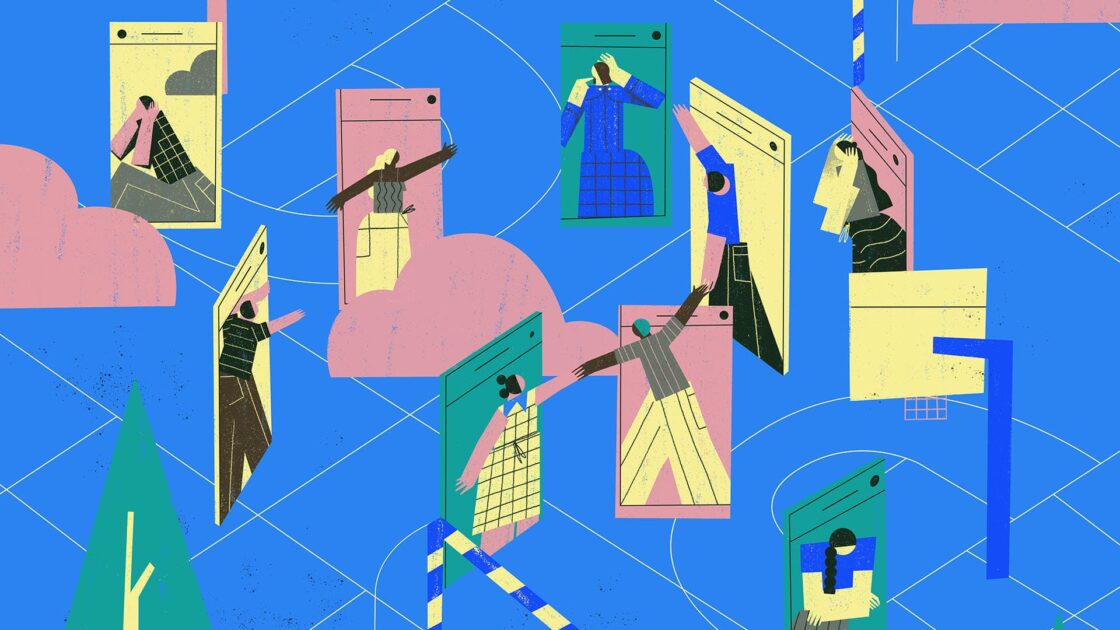What to do if your nudes are shared online
What to do if intimate images or video of you is at risk of being leaked

Image-based sexual abuse is when someone shares, or threatens to share, a nude or sexual image or video of someone without their consent. This is sometimes also called ‘revenge porn’ but this term can be misleading. Many perpetrators of image-based sexual abuse are not motivated by revenge or by any personal feelings towards the person at all.
Image-based sexual abuse, or the threat of it, can be a very upsetting experience. Having your privacy violated in this way might trigger feelings of embarrassment, guilt, or shame. Remember that what has happened is not your fault and you are not alone.
If you have been the victim of image-based sexual abuse where intimate images of you have been shared online, or you have been threatened they will be shared online, you can contact the Gardai to report the incident and get help on what to do next.
Sharing a sexual or nude image or video of somebody without their consent is illegal and it is never okay. If you are sent an image like this, do not pass it on to anyone else. Report the content if it has been shared on a social media platform, and tell the person who sent it to you that they should not be sending the image to anyone.
In this section
- What is image based sexual abuse?
- How does image based sexual abuse happen?
- How to avoid image based sexual abuse
- There are naked photos/videos of me online. What do I do?
- Image based sexual abuse and the law
What is ‘image based sexual abuse’?
Image-based sexual abuse, also known as non-consensual pornography, sextortion, or revenge porn, is when someone shares nude or sexual images or videos of another person, without the permission or consent of that person. It might be done by a partner or ex-partner, someone you know, or someone you don’t know like a hacker. More often than not, this distribution happens online, but it doesn’t necessarily have to.
How does image based sexual abuse happen?
Some people like to share sexual images or videos of themselves with someone they are interested in sexually or with a partner. This can be a normal activity within a healthy, consensual interaction or relationship. However, it is not normal, healthy or acceptable in any way, to share these images with others without the persons’ consent. It is cruel, hurtful, and can be hugely damaging. Furthermore, it says many more negative things about the person who shared the photos, than of the person who is in them.
How to avoid image based sexual abuse
Firstly and most importantly, do not under any circumstances distribute sexual images of anyone without their consent. No matter how much you feel they hurt you or treated you badly, or even if you don’t know the person, you have no right to share images or videos of them that were privately shared. Regardless of how badly a relationship ended, this is a deeply cruel violation of trust and is not an acceptable or normal response.
If you are concerned about image-based sexual abuse happening to you, here are some steps you can take:
- Until you feel confident you can trust a partner, you should avoid sharing sexual images or videos of yourself with them. It can be hard to know when you can truly trust someone, so if you feel any sense of worry or doubt, just hold off.
- If you are going to share intimate photos or video with someone, you can avoid putting distinguishing features in the images, such as your face, a location that gives you away, or a tattoo or birthmark.
- If you feel your partner is pressuring you in any way to share sexual images or videos when you don’t feel comfortable, discuss it with them and let them know their behaviour is making you uncomfortable. If they don’t address your concerns, it might be best to consider breaking up with them. That sort of behaviour is unacceptable.
There are naked photos/videos of me online. What do I do?
If someone shares intimate images or videos of you without your permission or threatens to, don’t feel guilty or ashamed. It may feel upsetting, hurtful or embarrassing, but the only person who has done anything to be ashamed of is the person trying to target you.
If you have been the victim of image-based sexual abuse where intimate images of you have been shared online, or you have been threatened that they will be shared, you can contact the Garda National Protective Services Bureau to report the incident and get help on what to do next.
Intimate images being shared without your permission can be a really upsetting experience. If it’s happened to you, and you’re struggling to cope with your feelings about it, make sure you talk to friends or family about how you’re feeling. If you feel you cannot talk to them about it, find someone you trust to talk to or reach out to a service anonymously. You may need counselling or other professional help to help you cope. Don’t feel ashamed or embarrassed to ask for help – it’s totally normal to require professional help to help you through a traumatic experience like this.
Looking after your mental health is the most important part of this process. Beyond that, here are some other steps you can take if intimate images of you have been shared:
- Untag yourself if tagged on social media
- Contact the person who has posted it and request they take it down
- Report it to the website in question and request they remove it. Sometimes this may take a bit of time, see our fact sheets on how to report content for social media platforms here
- Talk to a family member straight away and get them to help you; it may be embarrassing at first, but it’s better they’re aware and able to help you
- Contact the Gardai to report the incident and get help on what to do next.
- You may want to deactivate your social media accounts. If you don’t it is a good idea to take a step back from your accounts.
- Contact a legal professional to engage their assistance in removing it and demanding the person who shared it to surrender all copies they possess. Under Data Protection and copyright law, you have the legal right to have these images taken off the internet.
- Create social media profiles for your name. This will push the bad search results off the first pages of Google. There are professional privacy companies who can help you to do this.
Remember, that while this experience might be overwhelming and awful now, this will pass and things will get better. It can be hard when you’re in the middle of going through a difficult situation to feel that things will change, but it’s true. Make sure to speak to someone you trust and get support. It’s important to have someone who can help you through a challenging time – so make sure you don’t try to deal with it alone.
Image based sexual abuse and the law
Since 9 February 2021, new laws apply to the sharing of “intimate images” without the consent of the person in the images. If a person records, distribute or publishes intimate images of someone without their permission, they have broken the law.
Intimate images include any photo or video of:
- Someone’s genitals, breasts, bum or anal region
- The underwear covering these parts of the body
- A naked person
- A person engaged in any form of sexual activity
Depending on a person’s intent when sharing the images, they can face a maximum prison sentence of up to 7 years.
If someone is under 18 and a nude or sexual image or video of them is circulated, this is child pornography. Anyone who has distributed this will be liable to be prosecuted as a distributor of child pornography.
Feeling overwhelmed and want to talk to someone?
- Get anonymous support 24/7 with our text message support service
- Connect with a trained volunteer who will listen to you, and help you to move forward feeling better
- Whatsapp us now of free-text SPUNOUT to 50808 to begin.
- Find out more about our text message support service
If you are a customer of the 48 or An Post network or cannot get through using the ‘50808’ short code please text HELLO to 086 1800 280 (standard message rates may apply). Some smaller networks do not support short codes like ‘50808’.





